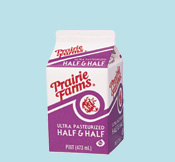English food has an undeservedly bad reputation. It is true that some English people subsist on a diet of fish and chips (one of the the world's greasiest foods), and that childhood obesity is becoming as big a problem in Britain as it is in the United States. Recently, celebrity chef Jamie Oliver launched a campaign to provide healthy food in school lunch rooms. The idea was ridiculed by pudgy Boris Johnson. At schools where healthy lunches were instituted, parents were discovered at lunch time passing greasy paper packages of fish and chips to their children through the school gates.
I have to admit that I find some of England's grosser creations quite delightful. Cumberland tatie pot (a mixture of lamb, potatoes and black pudding—i.e., congealed pig blood) is a good example. I love English sausages, especially Warwickshire sausages, redolent of sage, from the friendly butcher on Albion Street. We've fallen into a routine of having sausages and mashed potatoes on Tuesday evenings and fresh seafood from the market on Thursdays. Last Thursday, the fettucine with fresh Scottish sea scallops and roasted red pepper cream sauce was remarkable.
England, like the rest of Europe, has taken a firm stand against genetically-modified foods. There was a brief uproar a few weeks ago when GM rice from the United States slipped into the British food supply. Europeans, in general, like to know where their food comes from. Nonetheless, if you were to peek into our cupboards, you would conclude that most of our food comes from Sainsbury's (the national supermarket chain). More than 50% of the products Sainsbury's sells are store brands—Sainsbury's fruit and fibre cereal, Sainsbury's milk, Sainsbury's organic basmati rice, Sainsbury's fluoride toothpaste, Sainsbury's Kentucky bourbon, etc. That, I have to say, is a bit boring.
For lunch today, I'll have a Cox apple and a thick slice of bread, Somerset cheddar, and Branston pickle. I may wash it down with 440ml of Tetley's bitter, or at least have a cup of Yorkshire tea.
England is known for its fresh cream, especially the thick Devonshire cream that gives its name to the "cream tea" (scone, jam, cream). There is one area, however, in which England is deficient. There are no cartons of half-and-half for coffee. There is something called "pouring cream," but it comes in an absurd plastic yogurt container, and curdles in the refrigerator after about 36 hours. It's strange what you end up missing about your home country. One of the things I miss is this:



No comments:
Post a Comment